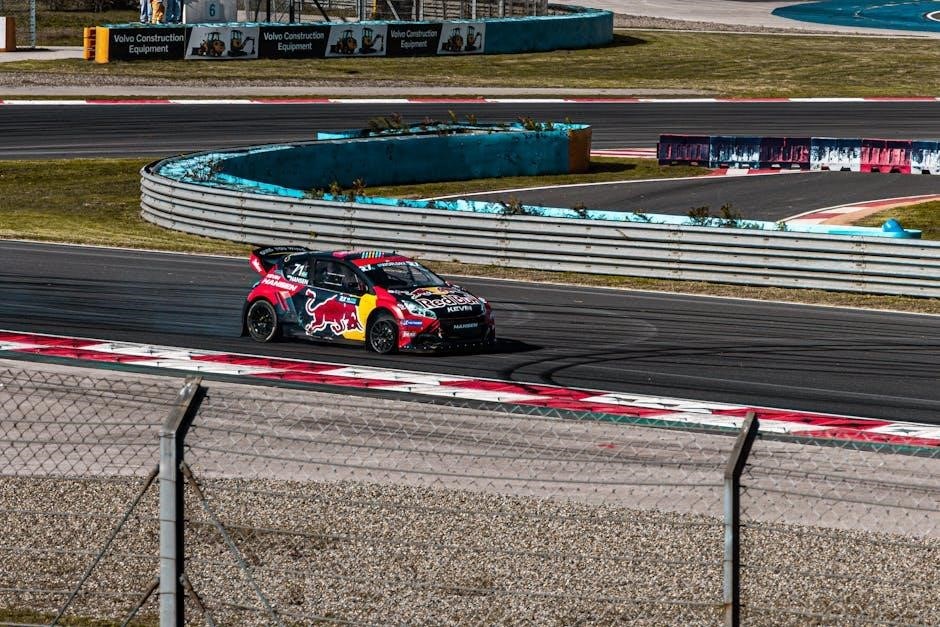car jerks when accelerating at low speeds manual

Car jerking when accelerating at low speeds can be frustrating and may indicate underlying issues such as faulty spark plugs, dirty air intakes, or transmission problems. While more common in manual vehicles, this issue can also affect automatics, making it essential to diagnose and address promptly for smooth driving.
Understanding the Issue
Car jerking when accelerating at low speeds in manual vehicles is a common issue that can be both frustrating and concerning. It often occurs during initial acceleration or when shifting gears at low speeds, causing an uneven or stuttering sensation. This problem can stem from various mechanical or maintenance-related factors. The engine’s ability to deliver smooth power relies on precise combustion, which requires the right balance of air, fuel, and ignition. Any disruption in this process can lead to jerking or stuttering. Additionally, the driver’s technique, such as abrupt clutch engagement or improper gear shifting, can exacerbate the issue. While occasional jerking might be normal in stop-and-go traffic, persistent or severe jerking typically indicates an underlying problem. Identifying the root cause is essential to restore smooth performance and prevent potential damage to the vehicle. Regular maintenance and prompt repairs are key to addressing this issue effectively.

Common Causes of Jerking in Manual Cars

Jerking in manual cars often stems from engine, transmission, or clutch issues. Factors like improper clutch engagement, worn components, or misfires frequently disrupt smooth operation, contributing to the problem.
Faulty Spark Plugs
Faulty spark plugs are a common cause of jerking when accelerating at low speeds in manual cars. Spark plugs play a crucial role in igniting the fuel-air mixture inside the engine cylinders. When they become worn out or fouled, they can misfire, leading to uneven engine operation.
This misfiring disrupts the smooth power delivery, causing the vehicle to jerk or stutter, especially during low-speed acceleration or when shifting gears. Over time, this issue can also lead to decreased fuel efficiency and reduced engine performance. Replacing faulty spark plugs with new ones can often resolve the problem and restore smooth acceleration.
Dirty Fuel Injectors
Dirty fuel injectors are a frequent culprit behind jerking sensations during low-speed acceleration in manual cars. Over time, fuel injectors can accumulate deposits and debris, obstructing the flow of fuel to the engine. This disruption leads to inconsistent fuel delivery, causing the engine to misfire or hesitate, which manifests as jerking or stuttering when accelerating.
Dirty injectors can also result in a lack of power and rough idling, further exacerbating the issue. Regular maintenance, such as cleaning or replacing fuel injectors, can resolve this problem. Ignoring this issue may lead to more severe engine problems over time, making it essential to address promptly for smooth and efficient performance.
Worn or Slipping Clutch
A worn or slipping clutch is a common cause of jerky acceleration in manual vehicles, particularly during low-speed driving. The clutch is responsible for smoothly transferring power from the engine to the transmission. When it becomes worn, it fails to engage and disengage properly, leading to abrupt jerks when accelerating from a standstill or shifting gears.
A slipping clutch may also cause the engine to rev without a corresponding increase in speed, further contributing to the jerking sensation. Additionally, worn clutch components can lead to stalling or difficulty maintaining speed at low RPMs. Replacing the clutch or related components, such as the pressure plate or flywheel, is often necessary to resolve the issue and restore smooth acceleration. Regular inspection and maintenance can help prevent premature wear and ensure optimal performance.
Transmission-Related Issues
Transmission-related problems can significantly contribute to jerking when accelerating at low speeds in manual vehicles. Issues such as faulty gear engagement, improper torque converter operation, or a malfunctioning transmission solenoid can disrupt smooth power delivery. If the transmission hesitates or falters, it may fail to stay in the appropriate gear, causing the vehicle to lurch or jerk, especially when accelerating from a standstill or shifting gears.

In manual transmissions, problems like worn-out gear synchros or damaged gear teeth can also lead to jerky acceleration. Additionally, low transmission fluid levels or contaminated fluid can impair the transmission’s ability to engage gears smoothly. Ignoring these issues can lead to more severe damage over time, making it important to address them promptly. A professional inspection and necessary repairs can help restore smooth acceleration and prevent further complications.

Catalytic Converter Obstruction
A clogged or obstructed catalytic converter can cause jerking when accelerating at low speeds in manual vehicles. The catalytic converter is a critical component of the exhaust system, responsible for reducing emissions by converting harmful gases into less harmful ones. When it becomes blocked, it creates backpressure in the exhaust system, which can disrupt the engine’s ability to run smoothly.
This backpressure can lead to uneven engine performance, causing the vehicle to jerk or hesitate during acceleration. In manual transmissions, this issue may be more noticeable when shifting gears or accelerating from a stop. If the catalytic converter is obstructed, it can also cause the engine to misfire, further exacerbating the jerking sensation. Drivers may also notice a decrease in overall power and fuel efficiency. Addressing this issue promptly is essential, as a blocked catalytic converter can lead to more severe engine damage over time. In such cases, professional diagnosis and repair are typically required to restore proper engine function and smooth acceleration.

Loose Motor Mounts
Loose motor mounts can contribute to jerking when accelerating at low speeds in manual vehicles. Motor mounts are designed to secure the engine and absorb vibrations, ensuring smooth operation. Over time, these mounts can wear out or become loose, allowing the engine to move excessively during acceleration.
This excessive movement can disrupt the balance of power delivery, leading to jerky sensations, especially in manual transmissions. When the engine shifts or moves unevenly, it can cause the drivetrain to react unpredictably, making the vehicle jerk or hesitate when accelerating from a standstill or at low speeds; In some cases, loose motor mounts may also produce clunking or rattling noises, further indicating the issue. Addressing loose motor mounts typically involves tightening or replacing them, which can help restore smooth acceleration and eliminate the jerking sensation. Regular maintenance and inspections are crucial to prevent such issues from arising in the first place.
Dirty or Clogged Air Intake

A dirty or clogged air intake system can significantly contribute to jerking when accelerating at low speeds in manual vehicles. The air intake system is responsible for supplying the engine with the necessary airflow to maintain optimal combustion. When the air intake becomes obstructed, whether due to dirt, debris, or other contaminants, the engine may struggle to draw in enough air, leading to an imbalanced air-fuel mixture.
This imbalance can cause the engine to hesitate or stutter, particularly during low-speed acceleration. Drivers may notice a jerking sensation as the engine tries to compensate for the lack of airflow, resulting in uneven power delivery. Over time, this issue can worsen, potentially leading to decreased performance and fuel efficiency. Cleaning or replacing the air filter and inspecting the entire intake system for blockages are effective solutions to address this problem. Regular maintenance of the air intake system is essential to prevent jerking and ensure smooth engine operation.
Leave a Reply
You must be logged in to post a comment.